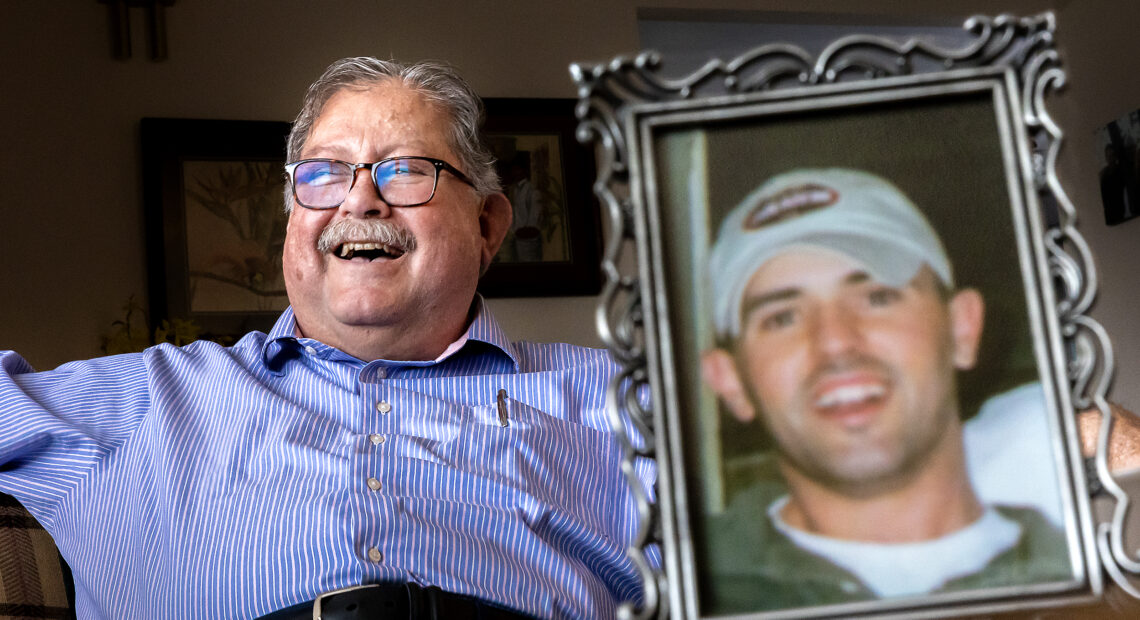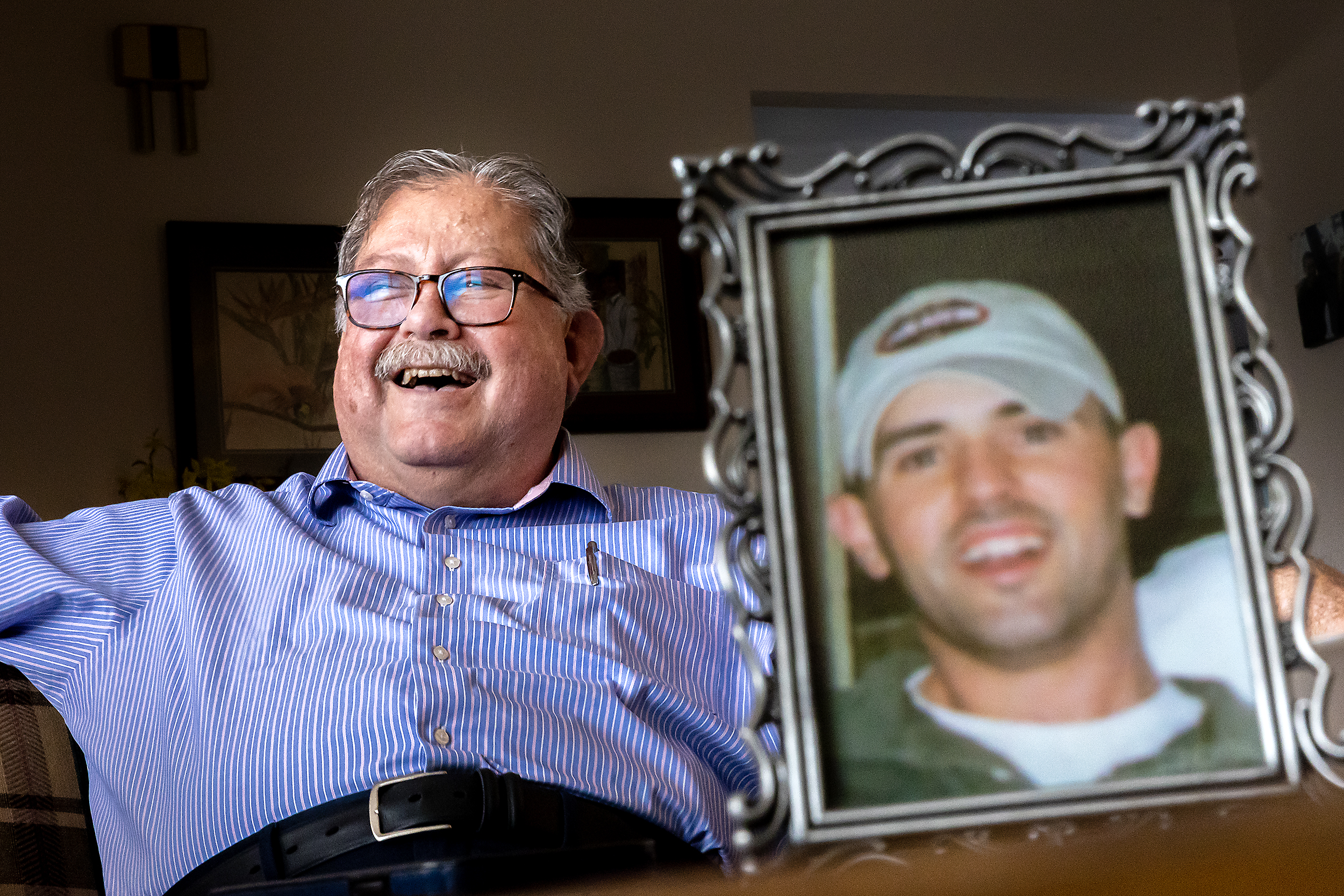
Donating life: how a young man’s organ donation decision helped a father live
Listen
(Runtime 1:19)
Read
When Wes Clizer got his pancreas and kidney transplant, he wrote a letter to the family of his donor, Mark, thanking them.
A diabetic, Clizer had been on dialysis for around two years. In his letter, he wrote that he hoped the transplant would buy him enough time to see his 10-year-old son, John Clizer, graduate from high school.
That was 23 years ago.
“Every day I get up, and I think of the courage it takes to be a donor,” said Wes Clizer, who lives in Clarkston. “And I am happy.”
Back in 2000, Wes Clizer nearly missed his chance for his transplant. The paging device that was supposed to alert him of an available transplant failed, and so although he’d been near the hospital in Seattle where the transplant was available, Wes Clizer and his wife, Sharon Clizer, had already left town. They reached Dayton, Wash., before the hospital was able to get in contact with them.
“We got a call from them at six o’clock on Sunday night, and they said, ‘Can you be back to Seattle by 11 o’clock?’ We said, ‘Well, we could try,’” Sharon Clizer said.
Several phone calls, an emergency flight and a late-night pickup at the airport later, and Wes Clizer was back in the hospital and prepping for his transplant.
In the years that followed, Wes Clizer did get to see his son, John, graduate from high school. Then, from college. He then watched his son begin a career in law enforcement, before starting a family with his wife, Taylor.
Arlene Mitterholzer, the mother of Mark Mitterholzer, said the decision to donate her son’s organs was emotionally fraught for their family. But a conversation she’d had with Mark Mitterholzer, years before, helped the family make the decision.
Mark Mitterholzer died at 23, after being assaulted at a bar. At the time, his family didn’t have access to his driver’s license indicating his donor status, since police collected his license with other evidence. But years before, he had talked to his mom about donating.
“At 16 years old, he had a motorcycle accident and he broke his sternum into his heart. He didn’t have to have surgery, it came out on its own, but it gave him a lot of time,” she said. “He and I were at home one day, and he said, ‘Mom if anything ever happens to me, I want to be an organ donor.’”
When people are near death, family members are asked about donation before the individual has died. Sharon Clizer said it can be hard for people who are losing their loved ones, but when someone decides to donate, it can have a profound impact for recipients and their families.
In one case, she said, a friend told her she was upset at being asked about donating her daughter’s organs, who had not yet died.
“I said, ‘That’s the only time they can ask you,’” Sharon Clizer said.
At the time of their conversation, Arlene Mitterholzer said she had been taken aback by her son’s declaration that he wanted to donate at just 16 years old. The two had a conversation, she said, which would end up having a profound impact on her family and the Clizer family just a few years later.
“He and I had this wonderful conversation,” she said. “About life, about loving life and about wanting to be able to live it to the fullest, share it to the fullest. So, the last sentence that we had in that conversation, I’ll never forget, because he said, ‘Mom, if I can’t use it, why wouldn’t I want somebody else to?’”
Mitterholzer’s husband was initially against donation, she said, because he wondered if the decision might mean less care would be used to save his son. But, during a family meeting, he changed his mind.
“23 years … nothing makes me cry that often, but this does,” she said. “He said, ‘I think we should set aside our wishes, and go with what we think Mark would have wanted.’ That gave me the opportunity to say, ‘I know what Mark wanted.’”
In the years that following Wes Clizer’s transplant, the Clizers and Mitterholzers connected after Wes Clizer sent the family a letter. Sharon Clizer said she still often sends family photos to the Mitterholzers.
“Those guys are just thrilled every time I send baby pictures and stuff,” she said. “They feel connected.”
Mitterholzer said it’s helped her to see the impact her son’s decision, all those years ago, made in Wes Clizer’s life.
“[Mark] just attacked life in such a fun way,” she said. “Everybody agreed, Mark loved life, and he would want this.”
Today, both families, including Mark’s father, have become outspoken advocates for donation. Arlene Mitterholzer said although her family decided to meet with Wes Clizer, there’s never an obligation to do so.
“Everybody deals with grief in a different way. Some people are very open to meeting, and some people don’t want to do it,” she said. “That is totally up to the individual.”
She said she encourages everyone to consider what their decision would be about donation. If someone decides they want to be a donor, she urges them to share that information with others.
At the time of Mark’s death, Mitterholzer said, the police took all of his belongings as evidence, including this donor card.
“At that moment, we would not have known,” she said. “It actually helps lessen the pain, knowing that there’s a part of your loved one living on.”
More information about organ donation is available at donatelife.net. People interested in registering as an organ donor can find resources to do so at organdonor.gov/sign-up/how.
This report is made possible by the cooperative agreement with NWPB, the Lewiston Tribune and the Moscow-Pullman Daily News.
















